 One of the pleasures of Supporting Actress Sundays is of the "getting to know you" sort -- encountering performers about whom I was previously naïve and developing a significant appreciation of not only their individual performances but also their significance within the broad history of Hollywood acting. And few actresses remind me of such discoveries more vividly than...
One of the pleasures of Supporting Actress Sundays is of the "getting to know you" sort -- encountering performers about whom I was previously naïve and developing a significant appreciation of not only their individual performances but also their significance within the broad history of Hollywood acting. And few actresses remind me of such discoveries more vividly than...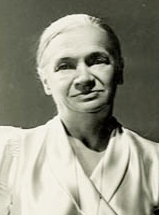
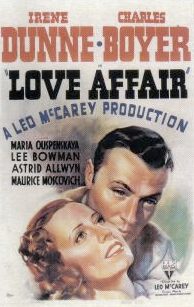
...Maria Ouspenskaya in Love Affair (1939)
approximately 9 minutes and 39 seconds
3 scenes
roughly 11% of film's total running time
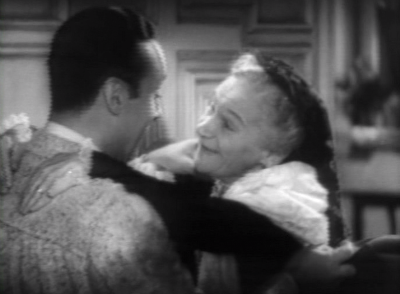 Boyer's Michel "drops in" on Ouspenskaya's Janou while at port in Madeira, where the elderly woman maintains a devotional vigil for her beloved, deceased husband. On a fateful whim, Michel invites the woman he's been flirting with on ship, Terry McKay (Irene Dunne in a emotionally textured, romantic performance), to join him in his visit.
Boyer's Michel "drops in" on Ouspenskaya's Janou while at port in Madeira, where the elderly woman maintains a devotional vigil for her beloved, deceased husband. On a fateful whim, Michel invites the woman he's been flirting with on ship, Terry McKay (Irene Dunne in a emotionally textured, romantic performance), to join him in his visit.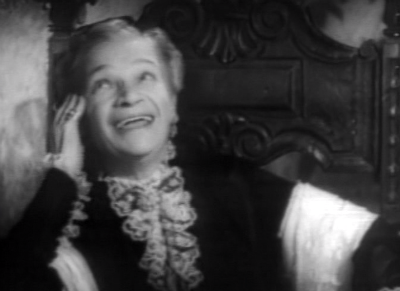 Ouspenskaya's Janou is herself captivated by Dunne's Terry and the two build a quick, conspiratorial connection, sharing amused observations about Michel, a man they both adore. As they chat over tea, it soon becomes clear that Janou likes the reality of Dunne's Terry much more than the idea of the wealthy fiancée Boyer's Michel plans to wed upon his return to New York.
Ouspenskaya's Janou is herself captivated by Dunne's Terry and the two build a quick, conspiratorial connection, sharing amused observations about Michel, a man they both adore. As they chat over tea, it soon becomes clear that Janou likes the reality of Dunne's Terry much more than the idea of the wealthy fiancée Boyer's Michel plans to wed upon his return to New York.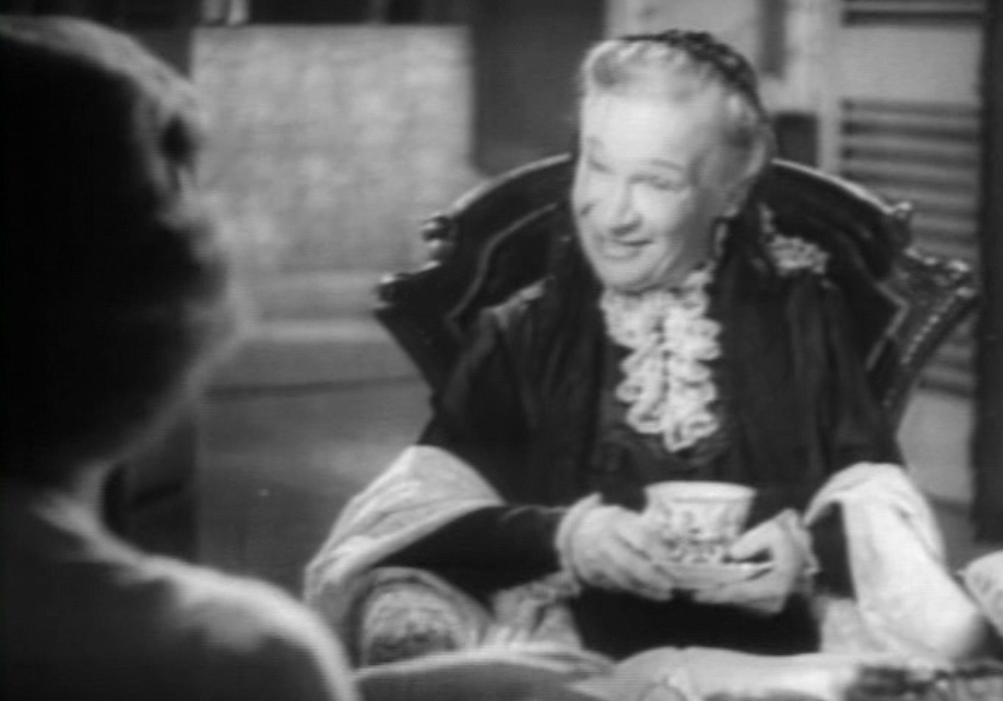 As a film, Love Affair is premised upon the familiar "will they or won't they" question. Yet the pleasures of this narrative do not reside in the question's simply conclusive answer but from the exquisite suspense of waiting for these true lovers to embrace their romantic fate. And, as the only other character of any actual import to the narrative, Ouspenskaya's Janou offers an essential contribution to the romantic suspense: her endorsement ratifies the truth of the "true love" discovered by Michel and Terry.
As a film, Love Affair is premised upon the familiar "will they or won't they" question. Yet the pleasures of this narrative do not reside in the question's simply conclusive answer but from the exquisite suspense of waiting for these true lovers to embrace their romantic fate. And, as the only other character of any actual import to the narrative, Ouspenskaya's Janou offers an essential contribution to the romantic suspense: her endorsement ratifies the truth of the "true love" discovered by Michel and Terry.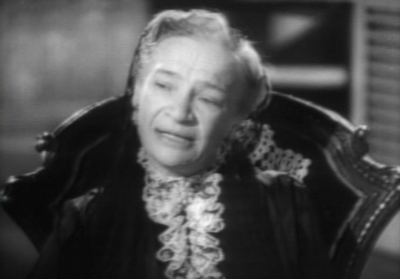 The character of grand-mére Janou operates as a concentrated jolt of emotional honesty in a film constructed upon polite deceptions and demurrals. And Ouspenskaya's performance delivers this jolt with a humanized clarity. In her brief sequence of scenes, Ouspenskaya lets us know -- or lets us think we know -- a great deal about this old woman. In many ways, Ouspenskaya's is the most developed characterization in the film, loaded with tiny details suggestive of rich subtext and a deep backstory, providing a vividly clarifying counterpoint to the more emotionally independent work of the two charismatic leads.
The character of grand-mére Janou operates as a concentrated jolt of emotional honesty in a film constructed upon polite deceptions and demurrals. And Ouspenskaya's performance delivers this jolt with a humanized clarity. In her brief sequence of scenes, Ouspenskaya lets us know -- or lets us think we know -- a great deal about this old woman. In many ways, Ouspenskaya's is the most developed characterization in the film, loaded with tiny details suggestive of rich subtext and a deep backstory, providing a vividly clarifying counterpoint to the more emotionally independent work of the two charismatic leads.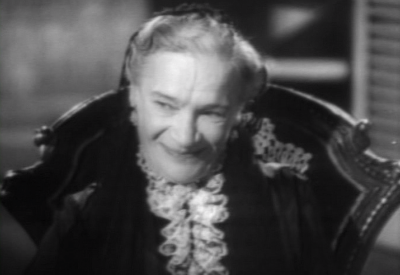 Among actresses recognized in the first several years of the Supporting Actress category, Ouspenskaya's performances are brief and pungent, haunting for their resonance and vibrancy. Hers is a style of acting -- drenched in a Stanislavskian subtlety of detail and emotional depth -- that was not yet conventional in Hollywood, especially for secondary character roles. As such, I suspect it's easy today to look past Ouspenskaya's accomplishment in a role like grand-mére Janou, to casually dismiss it as a performance any decent actress at the edges might have given. To do so, I fear, would miss the point of Ouspenskaya's historical importance. Any actress with some technique might have given such a performance, but few actually did. Such is the case, I suspect, because a behavior-based (as opposed to "lines of business"-based) approach to acting character roles had not hit its tipping point. Her recognition for this performance, especially in contrast to her radically different performance in a superficially similar role in 1936's Dodsworth, underscores just how fundamentally the approach to screen acting -- especially for secondary characters -- was beginning to change as Hollywood approached the 1940s.
Among actresses recognized in the first several years of the Supporting Actress category, Ouspenskaya's performances are brief and pungent, haunting for their resonance and vibrancy. Hers is a style of acting -- drenched in a Stanislavskian subtlety of detail and emotional depth -- that was not yet conventional in Hollywood, especially for secondary character roles. As such, I suspect it's easy today to look past Ouspenskaya's accomplishment in a role like grand-mére Janou, to casually dismiss it as a performance any decent actress at the edges might have given. To do so, I fear, would miss the point of Ouspenskaya's historical importance. Any actress with some technique might have given such a performance, but few actually did. Such is the case, I suspect, because a behavior-based (as opposed to "lines of business"-based) approach to acting character roles had not hit its tipping point. Her recognition for this performance, especially in contrast to her radically different performance in a superficially similar role in 1936's Dodsworth, underscores just how fundamentally the approach to screen acting -- especially for secondary characters -- was beginning to change as Hollywood approached the 1940s.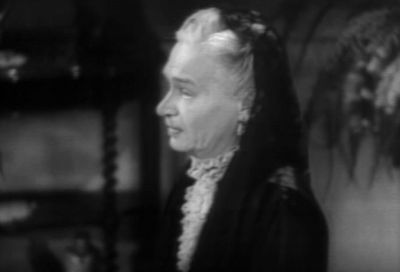 Consider, for example, Ouspenskaya's handling of "the ship whistle moment" that comes as Janou plays the piano. We see the whistle's sound stab Ouspenskaya's Janou as might a dagger, reminding her -- in an instant -- of how quickly the pleasures of love are ended. While still in profile, Ouspenskaya's eyes well with tears, before her face contorts in a grimace as she reaches for her beloved grandson Michel, confessing -- as a child might -- "I hate ship's whistles." This moment is neither the most sophisticated nor innovative piece of screen acting. Indeed, Ouspenskaya hits marks that any character actress in 1939 might have also hit. Yet Ouspenskaya invests each "beat" with a precise depth of human emotion that is both beyond the character's scripted function and also precisely within its narrative tasks.
Consider, for example, Ouspenskaya's handling of "the ship whistle moment" that comes as Janou plays the piano. We see the whistle's sound stab Ouspenskaya's Janou as might a dagger, reminding her -- in an instant -- of how quickly the pleasures of love are ended. While still in profile, Ouspenskaya's eyes well with tears, before her face contorts in a grimace as she reaches for her beloved grandson Michel, confessing -- as a child might -- "I hate ship's whistles." This moment is neither the most sophisticated nor innovative piece of screen acting. Indeed, Ouspenskaya hits marks that any character actress in 1939 might have also hit. Yet Ouspenskaya invests each "beat" with a precise depth of human emotion that is both beyond the character's scripted function and also precisely within its narrative tasks.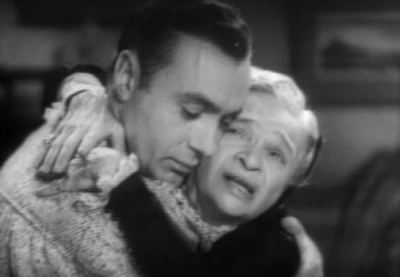 In the seven decades since this performance, we have come to expect such nuance and depth from our treasured actresses at the edges but, in 1939, I would submit that Maria Ouspenskaya was still something of a pioneer of "the edges" as legitimate terrain for serious actressing.
In the seven decades since this performance, we have come to expect such nuance and depth from our treasured actresses at the edges but, in 1939, I would submit that Maria Ouspenskaya was still something of a pioneer of "the edges" as legitimate terrain for serious actressing.

4 comments:
But among the several grand-mere Janou -- from Maria Ouspenskaya to Katharine Hepburn's interpretations -- which one do you think was the best?
This is the only version of Affair I've seen.
I'll have more to say when I post my thoughts, but, my admiration for Ouspenkaya and Boyer's farewell scene aside, I didn't like the performance quite as much, in large part because it augured the seriousness with which the film was now going to take itself. In a script better able to handle the tonal shifts (maybe by Lubitsch's old hand Samuel Raphaelson), I might have accepted Ouspenkaya's Old World grace. Instead, it's the last bit of class before the movie becomes a "Carol Burnett Show" parody waiting to happen.
I'm not sure I'd go so far as to say I "liked" the performance. I did find it worth admiration &/or recognition for the reasons I noted.
And, taken as a whole, 1939 seems ripe-to-bursting with material for Carol Burnett-style parody.
Post a Comment